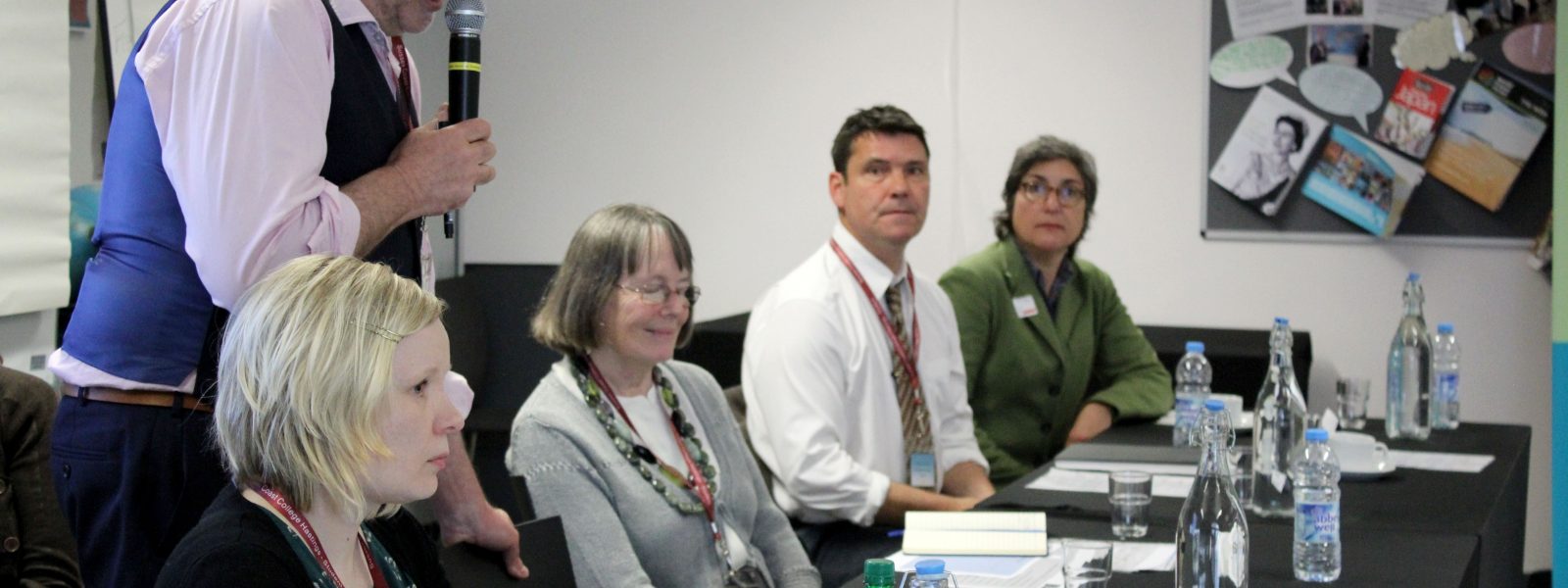Last Friday’s Community Solutions to Fuel Poverty workshop organised by Energise Sussex Coast and sponsored by National Energy Action (NEA) was chaired by the Rt Hon Amber Rudd MP, Secretary of State for Energy and Climate Change. The workshop held at Sussex Coast College saw a unique range of companies and organisations come together to find solutions to one of the UK’s biggest challenges: Fuel Poverty.
Peter Smith, Head of Policy and Research at fuel poverty charity National Energy Action (NEA) said:
“Fuel poverty causes needless suffering and costs local health services a fortune. In Hastings we know around 5850 households are unable to afford to heat their homes and an estimated 297,000 households in the South East living in fuel poverty. This workshop identified opportunities for key partners to come together and work collaboratively to end fuel poverty once and for all.”
The workshop also announced that a partnership led by Amicus Horizon with Hastings Borough Council and Energise Sussex Coast had won £ 900,000 from the EU to make 600 homes in Ore energy efficient, saving residents money and reducing their bills by becoming a “Climate Active Neighbourhood” (CAN) area.
The Rt Hon Amber Rudd MP said,
“I was delighted to speak at this workshop designed to deal with such an important issue, as I am very much focused on doing everything I can to help constituents reduce their fuel bills and it is fantastic that Hastings will be receiving as much as £900,000 from the EU, which is another reason why I am so firmly in support of staying within the EU.”
Delegates to the workshop included leading experts from Oxford and Sussex Universities, the NHS, CAB and Community Energy South as well as infrastructure companies with 20 million customers such as Scotia Gas and UK Power Networks.
Matt Rudling, Director of Customer Services from UK Power Networks, commented
“People don’t pay their bills direct to us but we run the networks which deliver the power. In these areas, one of the best ways we help those struggling with their electricity bills, is keeping our proportion of the bill as low as possible. Cold homes affect people’s lives in the UK and we do our utmost to provide extra care and services. All sorts of people can find themselves in fuel poverty and we want to work with as many partners as possible to try to identify innovative solutions.”
During the first session of the workshop delegates looked at research and case studies funded by the Chesshire Lehmann Fund, including a Hastings family featured in the BBC Panorama Programme “ Too Poor to Stay Warm” to identify where the energy and housing market is failing and where key policy changes need to be made.
In the second session, Andrew Piper of Amicus Horizon and Dr Mary Gillie of Energy Local outlined how the CAN scheme could not only retrofit social and private homes in Ore but pioneer new ways of using renewable energy locally and managing energy demand to reduce residents bills significantly.
Richard Watson OBE, Founder of Energise Sussex Coast, said
“What was unique about this workshop was not just the diverse range of partners willing to collaborate to try and solve this problem, but the realization that by solving fuel poverty and improving our housing stock we help address other key challenges like climate change and energy security.”
